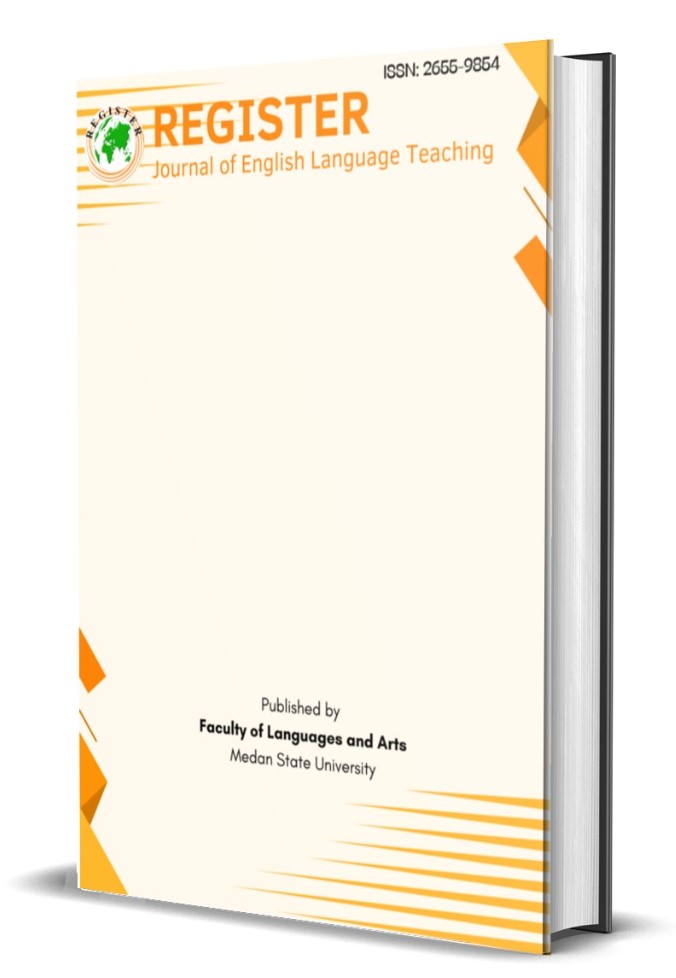Power and Persuasion: Analyzing Barack Obama’s ‘A More Perfect Union’ Speech
DOI:
https://doi.org/10.24114/reg.v14i1.64400Abstract
Barack Obama's A More Perfect Union speech is examined in this article using both a descriptive quantitative and rhetorical approach. The speech, delivered in 2008 during his presidential campaign, addressed racial tensions and called for togetherness in the midst of political upheaval. The study uses descriptive quantitative analysis to track linguistic patterns like word frequency and sentence structure, as well as rhetorical analysis to investigate Obama's use of ethos, pathos, and logos. According to the findings, Obama's strategic use of inclusive language, emotive appeals, and logical reasons strengthens his unifying message. This dual-method approach shows the speech's effectiveness in addressing polarizing issues while also providing insights into the broader effects of political discourse in promoting societal advancement. In "A More Perfect Union," Barack Obama highlights the value of unity as the cornerstone of national advancement. He uses the phrase "We the people, in order to form a more perfect union," which appears in the U.S. Constitution, as a reminder that aiming for perfection is a continuous process that has been carried out through the ages. Obama makes the case that history demonstrates that unity and teamwork may bring the nation closer to its values, even while he acknowledges that the country may never reach complete perfection. Obama also talks about the profound effects of racial injustice throughout American history. He talks about how injustice's legacy still has an impact on people's lives today and exhorts them to comprehend its causes rather than escalating the gap. "The anger is powerful and real," he says. And simply wishing it away exacerbates the misperception." With this, he challenges Americans to face racial complexity with compassion and understanding. The speech's end is centered on optimism and a call to action. "We can accept a politics that breeds division, and conflict, and cynicism," Obama says, urging the country to reject divisive politics. Alternatively, we can unite throughout this election and declare, "Not this time." A universal moral precept, "Do unto others as you would have them do unto you," is cited by him to emphasize the value of compassion and unity in creating a better future. Obama's credibility (ethos) is established through personal anecdotes in the speech. As the son of a White mother from Kansas and a Black father from Kenya, he identifies as having a mixed-race heritage. His statement, "This nation is more than the sum of its parts," highlights the fact that diversity in America is a strength rather than a problem.Downloads
Published
Issue
Section
License
Copyright (c) 2025 Wahyu Taufany, Rafi Muhammad Lubis, Muhammad Rizky Septiandri, Evaness Jocelym, T Tyrhaya Zein

This work is licensed under a Creative Commons Attribution-NonCommercial-ShareAlike 4.0 International License.
Authors who publish with this journal agree with the following terms:
- Authors retain copyright and grant the journal right of first publication with the work simultaneously licensed under a Creative Commons Attribution License that allows others to share the work with an acknowledgment of the work's authorship and initial publication in this journal.
- Authors are able to enter into separate, additional contractual arrangements for the non-exclusive distribution of the journal's published version of the work (e.g., post it to an institutional repository or publish it in a book), with an acknowledgement of its initial publication in this journal.
- Authors are permitted and encouraged to post their work online (e.g., in institutional repositories or on their website) prior to and during the submission process, as it can lead to productive exchanges, as well as earlier and greater citation of published work (See The Effect of Open Access).
- This work is licensed under a Creative Commons Attribution-ShareAlike 4.0 International License.








